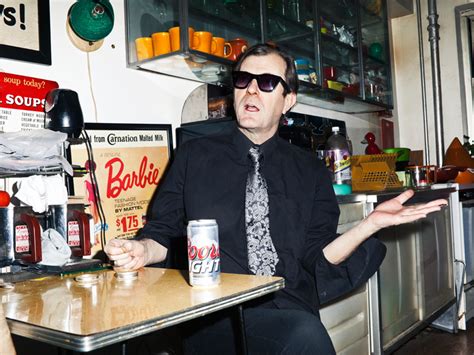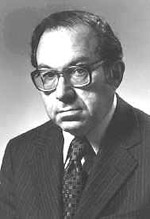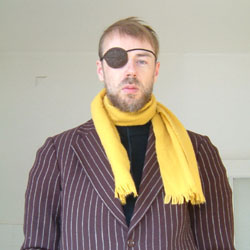A Quote by Gail Collins
I write about how in Midland, the mayor instituted water conservation measures like restrictions on car washing. He made a point though that they were only "suggestions" and not government telling people what to do. But then his constituents got very ticked off at the sight of their neighbors breaking the rules and demanded that they be made into actual laws with penalties.
Related Quotes
If laws were real they wouldn’t need to be enforced, because if they were real they couldn’t be broken. Try breaking the law of gravity. Now that’s a law. Laws made by man are rules reflecting the current status of his moral codes. As he alters and whittles away his morality, casting bits and pieces aside, his codes change to reflect it.
I have a very close friend who is a brilliant clown, and I always wanted to do a show with him. So I did one year at La MaMa Theatre. I had not done stilts before that show, and I had about two weeks to learn how to do that, and they were just made with off-off Broadway money. The ones that I had in Rogue One were made by [Industrial Light & Magic]. So they were really easy. They were made with actual prosthetic feet on the bottom. They were athletic, in a way. I could run in them. There was a bounce to them that I could use.
A constitution, therefore, is to a government what the laws made afterwards by that government are to a court of judicature. The court of judicature does not make the laws, neither can it alter them; it only acts in conformity to the laws made: and the government is in like manner governed by the constitution.
Don't you ever touch my car again," Santangelo says with the same fury he had on his face when Jonah Griggs made comments about his mother. Raffy touches the car with her finger in a very dramatic way. "You've just made our hit list," he says, getting a hanky out of his pocket and cleaning off some imaginary mark.
As the Nazi regime developed over the years, the whole structure of decision-making was changed. At first there were laws. Then there were decrees implementing laws. Then a law was made saying, ‘There shall be no laws.’ Then there were orders and directives that were written down, but still published in ministerial gazettes. Then there was government by announcement; orders appeared in newspapers. Then there were the quiet orders, the orders that were not published, that were within the bureaucracy, that were oral. And finally, there were no orders at all. Everybody knew what he had to do.
The idea that hunting is one against one is ludicrous. It's one animal versus the hunter, the manufacturer of the rifle, the bullet maker, the designer and manufacturer of the telescopic sight, the auto manufacturer who made the car the hunter got to the edge of the wild in, the maker of his waterproof shoes, the various manufacturers of his mittens, glasses, overcoat - and that's only the beginning of the list. The "sportsman" who shoots an animal should then make a speech, like the actor who wins an Oscar does, thanking the multitudes behind the scenes who made this "victory" possible.
With all the movies I've made about history, it's not really fun because you're trying to get it right. You've got history telling how it was, and then my imagination is telling me how I wish it had been, but I can't go there, so I have to censor myself. I'm very good about stopping myself from creating history that never occurred, but it's frustrating.
It is urged that the use of the masculine pronouns he, his, and him in all the constitutions and laws, is proof that only men were meant to be included in their provisions. If you insist on this version of the letter of the law, we shall insist that you be consistent and accept the other horn of the dilemma, which would compel you to exempt women from taxation for the support of the government and from penalties for the violation of laws. There is no she or her or hers in the tax laws, and this is equally true of all the criminal laws.
I enjoy the optimism of design, even though we can see it as doomed. But I'm telling most people that I'm not writing about design any more this year. It makes no sense at all during the recession unless you write about sustainable or ethical design-very basic things, like how to get clean water in countries with a shortage of it.
When you depart from standard usage, it should be deliberate and not an accidental lapse. Like a poet who breaks the rules of poetry for creative effect, this only works when you know and respect the rule you are breaking. If you have never heard of the rules you are breaking, you have no right to do so, and you are likely to come off like a buffoon or a barbarian. Breaking rules, using slang and archaic language can be effective, but it is just as likely to give you an audience busy with wincing.
The claim that the Government made that there were 21 measures in it is wrong. We said we wanted to wait till we saw the bill because we didn't to trust that it would be as they described and it's turned out we were exactly right for saying that. The Government has been entirely deceptive with this. And if their first action is to lie to the Australian people about what was meant to be their centrepiece bill, that really tells you want the [Malcolm] Turnbull Government's going to be about.
I'm really going off of watching John Waters speak one time and I remember he just kind of talked and it was totally interesting. I wanted to hear about his life and how he got started and when did he think he made it, stupid stuff like that. And what his relationship with the mainstream is because he's so far out there, but then he became part of the mainstream in this weird way. He was really funny, though. Yeah, I have to work on my jokes.
For people who are coming out of an oral tradition, it is very exciting to get into reading and writing and it is quite interesting how frequently people want to write their own story. Sometimes it is straight history - this is how we came about, how our town was created, a lot of that kind of effort, as soon as literacy came. The first thing you wanted to do was to put something down about who you are or how you are related to you neighbors. Then the next stage would be the stories, the cultural part of the story: this is the kind of world our ancestors made or aspired to.

































